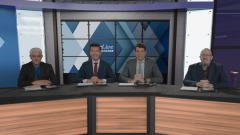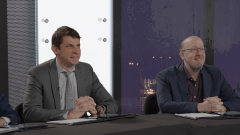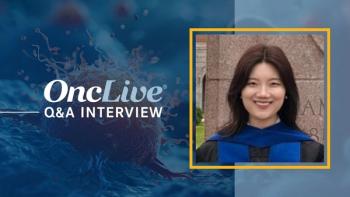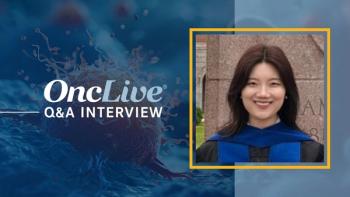
Is There a Role for Response-Adapted Treatment in Mantle Cell Lymphoma?
Matthew J. Matasar, MD, discusses the prospect of using minimal residual disease to guide treatment decisions in mantle cell lymphoma.
Episodes in this series

Transcript:
Alexey V. Danilov, MD, PhD: I hear a lot about minimal residual disease [MRD]. I also see a lot of patients with CLL [chronic lymphocytic leukemia]. There we have a plethora of studies which test for MRD [minimal residual disease]. Matt, can you tell us about MRD in mantle cell lymphoma?
Matthew J. Matasar, MD: Everyone’s excited about MRD. The spectrum of B-cell lymphoma has us all trying to understand how we can leverage MRD to better serve our patients. In mantle cell lymphoma, for me, it’s not nearly as clear as it is in CLL. You could go about this 2 different ways. Hypothetically, you could say that we want to use MRD to de-intensify treatment. Patients respond. They don’t only have a great PET [positron emission tomography] response, [but] I can’t even find any MRD in their blood or even in their bone marrow, so I’m going [to] shorten treatment. I’m going to de-intensify treatment. I’m going to respond to that excellent response in turn by limiting my therapy.
Is there any evidence that we can do that in mantle cell lymphoma right now? I would say it’s mixed. We see that patients can have time-limited therapy driven by MRD end points and enjoy reasonably good outcomes afterward. What we don’t yet know is whether you should be prospectively using that to choose the duration of treatment or the intensity of treatment. There was [an] interesting signal this year at ASH that using such an approach to determine whether to continue rituximab maintenance may do a disservice to the patients. The patients who were MRD negative enjoyed the greatest benefit from the relatively less toxic rituximab maintenance strategy. I’m not so sure the picture is as clear in mantle cell [lymphoma] as in other disease states. We need to learn more.
Alexey V. Danilov, MD, PhD: Boyu, do you think MRD for mantle cell [lymphoma] will be used in the community with success?
Boyu Hu, MD: Yes, I think it’ll be mixed. Some community doctors would love to use it just to be able to offer more time-limited therapy. That is where the field is headed, to not use BTK inhibitors forever and maybe doing combinations, so we know which was more effective. As Matt said, we don’t know the clinical significance of MRD in mantle cell [lymphoma] right now, so it’s tough to make any clinical decisions. There will be other community physicians who will be comfortable [saying,] if the patient is doing well on a therapy, why not just continue on therapy indefinitely? The uptake will be mixed.
Alexey V. Danilov, MD, PhD: Thank you.
Transcript edited for clarity.





































